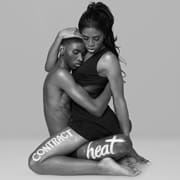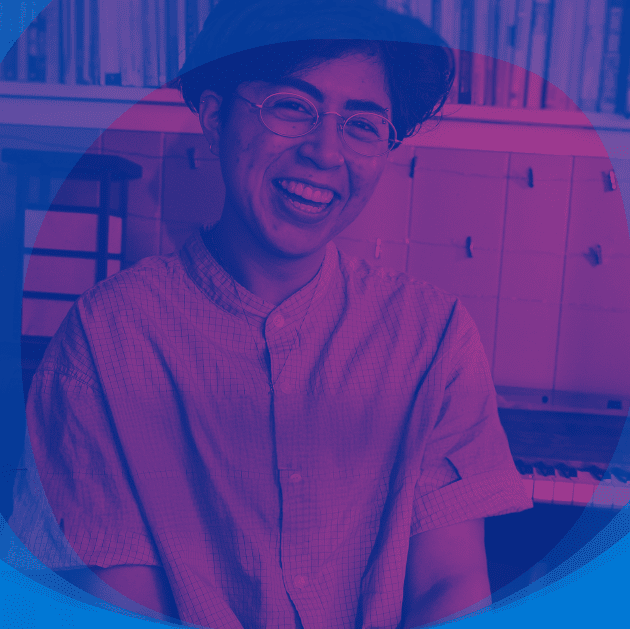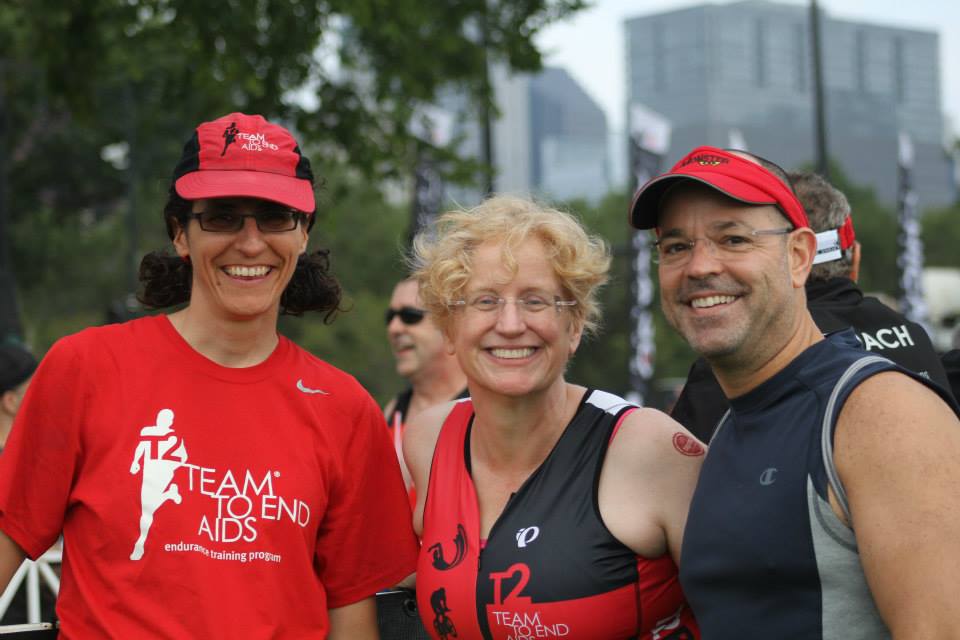by Briana Shields
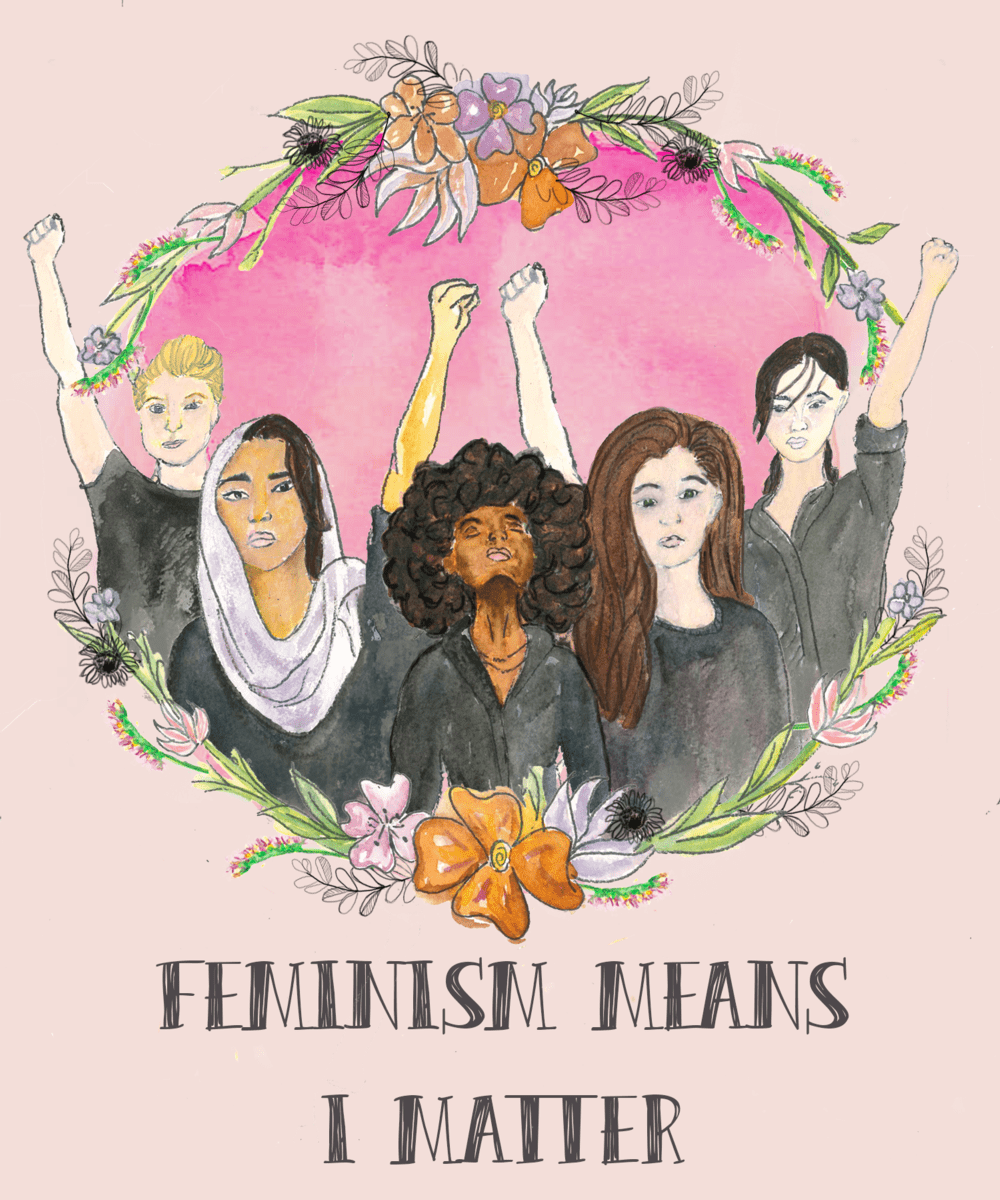
Briana Shields is a former graphic design intern and current volunteer for the AIDS Foundation of Chicago.
I marched in the Women’s March on Chicago for the generations of girls of color to come. Young women need to see that the world is big and full of variety. Now, we’re needed more than ever.
When you’re a young woman of color, most of the time you feel powerless. Growing up in Chicago’s Austin neighborhood, I felt powerless and that my voice didn’t matter.
In high school, I was one of three Black girls in my class. I always felt like the odd girl out and I started to believe I wasn’t important. One morning, I saw yellow papers taped on all the lockers and in all of the girl’s bathrooms. It was a flyer with a picture of a Black girl in my class with bananas and read, “Send this monkey back to the zoo.” I looked at that picture and thought, “My skin is black like hers, so am I a monkey, too.” I was angry, but I also felt uncomfortable because it was obvious we were thought of as un-human. As Black girls, we had no one to talk to about racism in our school or ask why students of color traveled across town attend what was perceived as the better school rather than receive the education we need in our own communities. I gave up speaking and living my truth.
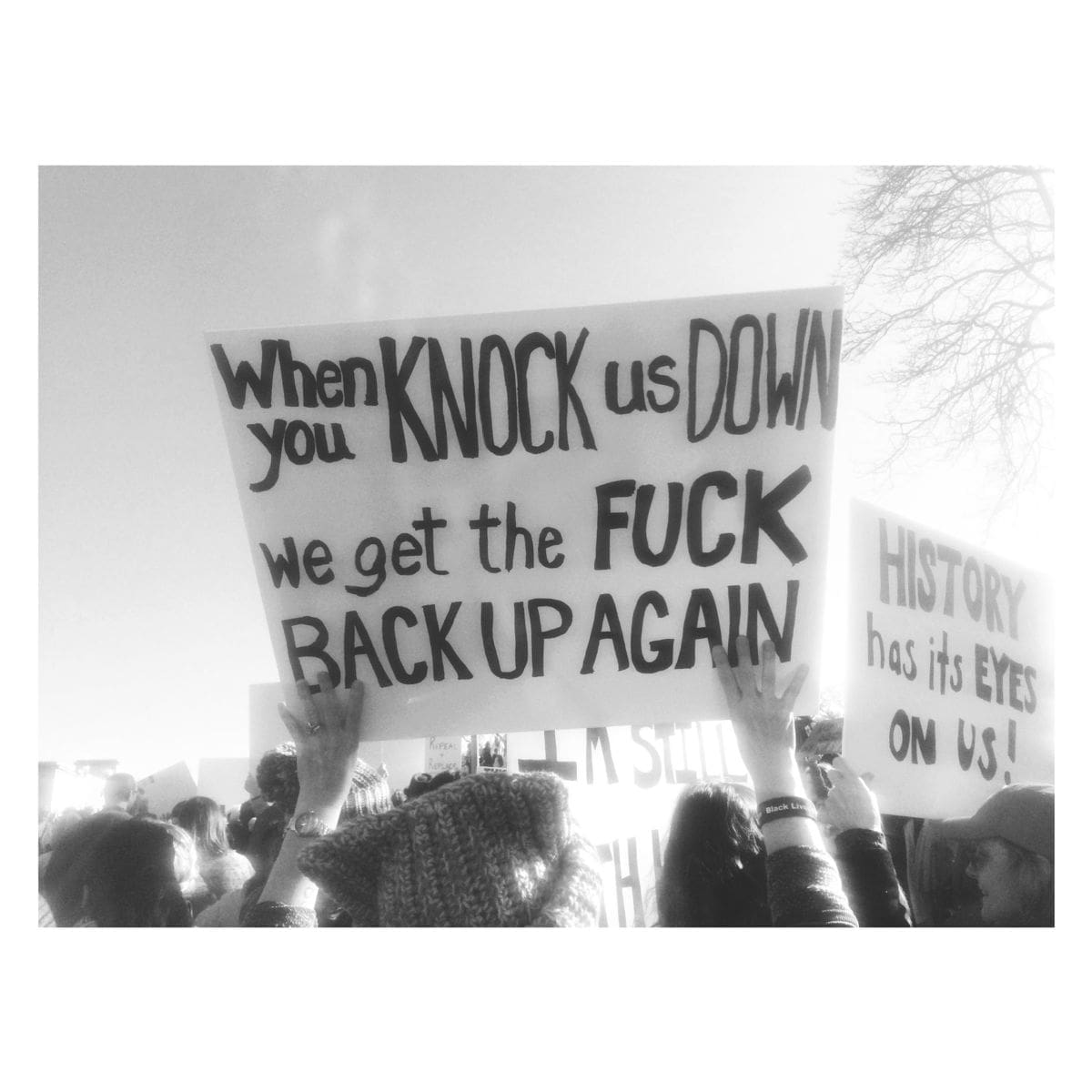 Working at the AIDS Foundation of Chicago as a graphic design intern in 2016 was an inspiring experience. There, I witnessed what collective power can look like. Seeing people with different backgrounds work together towards justice and equity with love and compassion moved me. I felt acknowledged, valued and supported by the AFC community and motivated to go beyond what I think I’m capable of. They taught me that better relationships improve communities and create equity. The women’s march was a first step to build a stronger community.
Working at the AIDS Foundation of Chicago as a graphic design intern in 2016 was an inspiring experience. There, I witnessed what collective power can look like. Seeing people with different backgrounds work together towards justice and equity with love and compassion moved me. I felt acknowledged, valued and supported by the AFC community and motivated to go beyond what I think I’m capable of. They taught me that better relationships improve communities and create equity. The women’s march was a first step to build a stronger community.
The women’s march was one of the most beautiful acts of unity I experienced after Trump’s election. The streets were filled with passion and drive. It felt good to be a part of something bigger than all of us — something that felt like sisterhood. There were so many women standing together, shouting together. We were all on the same page; we had the same needs and wants. This sisterhood must continue.
I believe that feminism isn’t feminism unless it’s intersectional. To eliminate oppression, we must confront the fact that 53% of white women cast their ballots for Trump. When we talk about gender, we cannot shy away from race, class and sexual orientation.
Why now? Why was this the final straw? I haven’t seen this many women at a Black Lives Matter march or any other march. Where is the outrage when women of color experience violence from institutions that should help us or when we are systematically denied health care, sustainable housing and quality education? We must center the specific needs of women of color and commit to addressing them. Real progress will be made when more white feminists challenge racism and stand with women of color in the struggles that are unique to us. In order to create change, we must unite.
“I am no longer accepting the things I cannot change, I am changing the things I cannot accept.” — Angela Davis

